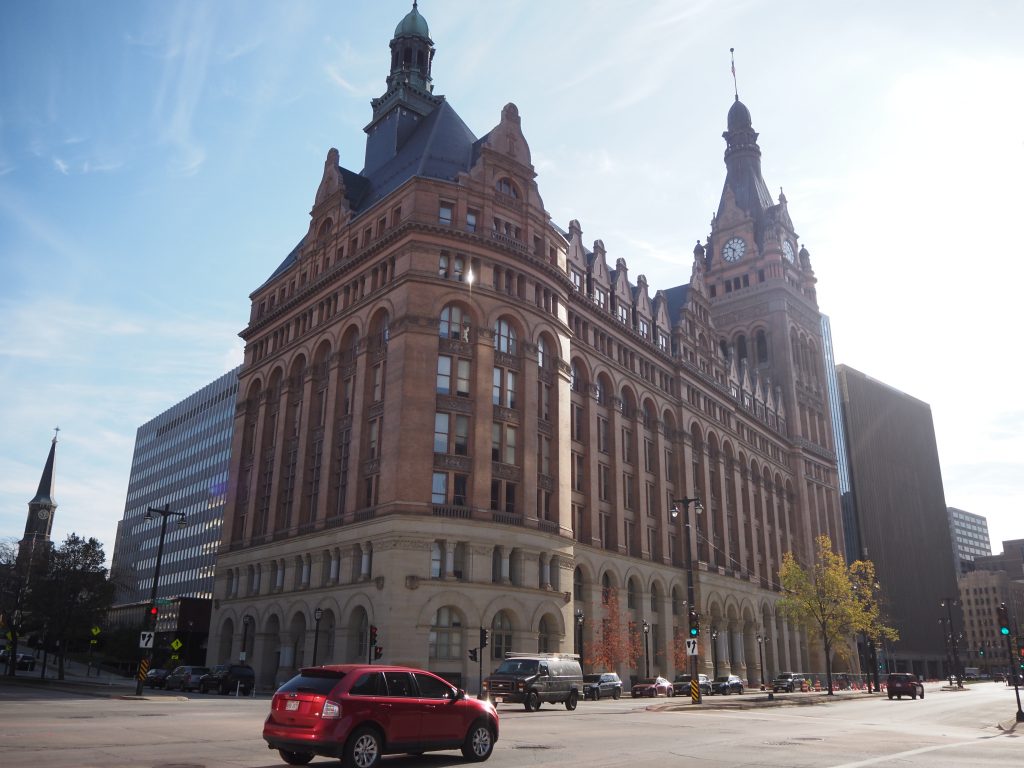New Milwaukee Sales Tax Collections Slow, But Comptroller Isn’t Panicking
There are a lot of reasons initial proceeds are slow says Comptroller Bill Christianson.
The City of Milwaukee’s new 2% sales tax has netted the municipality $63.9 million to date, far short of the $184 million predicted.
But that’s not a cause for panic, says Comptroller Bill Christianson.
“It’s simply too early to develop a projection for the end of the year as to whether we’re going to be higher, lower or spot on with our revenue estimate,” Christianson told the Finance & Personnel Committee on Wednesday.
There are several factors at play.
The most obvious factor is that seasonality impacts collections, with big spending and therefore collections in the holiday season and slower spending at the start of the calendar year, when the tax went into effect.
But the city also experiences a delay in receiving the funding. The Wisconsin Department of Revenue receives 96% of the sales tax revenue from businesses on a monthly basis, but in the month after the sale occurred. It then must transmit the money to the city.
“It’s not as if when you make a purchase in the city of Milwaukee and you tap or swipe your card, that the city portion of that sales tax goes immediately into city accounts, it goes through the Department of Revenue and then back to the City of Milwaukee,” said Christianson.
In addition, retailers need to be collecting the increased tax.
“I think we saw a little bit of that in the April and the March distributions that were a little low, most likely due to slow or delayed implementation by retailers,” said Christianson. Of the $17.8 million received in June, $500,000 was actually from January reports he said. “I think we are still seeing a little bit of catchup from those months.”
The sales tax, and an increased Milwaukee County sales tax, went into effect on Jan. 1 and boosted the sales tax from 5.5% to 7.9%. An additional 0.5% is collected on prepared food and beverage sales and funds the Wisconsin Center District.
Businesses are liable for failing to collect the correct amount.
The city received its first transfer, $4.6 million, in February, which represented only January sales from businesses that filed their returns well before a monthly due date. It received $11.1 million in March, $10.7 million in April, $19.7 million in May and $17.8 million in June.
There is also the challenge of the state only having prior data at the county level. Businesses with multiple locations aggregate their data to report a countywide figure, eliminating the ability to drill down.
“We had a number of limited, less than perfect, data points on which to prepare our revenue estimate for 2024,” said Christianson. He called the estimate “reasonably conservative” and based on low ends of ranges. The state, during the Act 12 debate, estimated that the city could collect $194 million.
“What I can say, I’m comfortable with our $184 million estimate,” said Christianson.
“We’ll put that in the good news category,” said committee chair Alderwoman Marina Dimitrijevic.
Alderman Peter Burgelis praised Christianson for managing the new process.
“I couldn’t be more appreciative of the help that the state Department of Revenue has offered our office,” said the Comptroller.
In addition to its elasticity, the sales tax will also have a timing impact on the city budget. State transfers received through February 2025 will be counted as part of the city’s 2024 budget.
The Wisconsin State Legislature granted the City of Milwaukee the 2% sales tax as part of Act 12, an overhaul of local government funding by the state. The tax averted a long-looming, and growing, fiscal crisis, triggered by state-imposed limits of new revenue sources and declining state aid.
A 2023 city budget office report said that, without the new funding, the city would need to eliminate 700 of the approximately 1,600 police officers, 250 of the approximately 700 firefighters and 400 general city employees.
A series of other measures were included in Act 12, including an increase in shared revenue, a “soft close” of the city’s pension system, policy restrictions on city actions and minimum public safety staffing levels.
Legislation Link - Urban Milwaukee members see direct links to legislation mentioned in this article. Join today
If you think stories like this are important, become a member of Urban Milwaukee and help support real, independent journalism. Plus you get some cool added benefits.
More about the Local Government Fiscal Crisis
- Mayor Johnson’s Budget Hikes Fees, Taxes In 2025, Maintains Services - Jeramey Jannene - Sep 24th, 2024
- New Milwaukee Sales Tax Collections Slow, But Comptroller Isn’t Panicking - Jeramey Jannene - Jun 28th, 2024
- Milwaukee’s Credit Rating Upgraded To A+ - Jeramey Jannene - May 13th, 2024
- City Hall: Sales Tax Helps Fire Department Add Paramedics, Fire Engine - Jeramey Jannene - Jan 8th, 2024
- New Study Analyzes Ways City, County Could Share Services, Save Money - Jeramey Jannene - Nov 17th, 2023
- New Third-Party Study Suggests How Milwaukee Could Save Millions - Jeramey Jannene - Nov 17th, 2023
- Murphy’s Law: How David Crowley Led on Sales Tax - Bruce Murphy - Aug 23rd, 2023
- MKE County: Supervisors Engage in the Great Sales Tax Debate - Graham Kilmer - Jul 28th, 2023
- MKE County: County Board Approves Sales Tax - Graham Kilmer - Jul 27th, 2023
- County Executive David Crowley Celebrates County Board Vote to Secure Fiscal Future and Preserve Critical Services for Most Vulnerable Residents - David Crowley - Jul 27th, 2023
Read more about Local Government Fiscal Crisis here
Political Contributions Tracker
Displaying political contributions between people mentioned in this story. Learn more.
City Hall
-
Council Blocked In Fight To Oversee Top City Officials
 Dec 16th, 2025 by Jeramey Jannene
Dec 16th, 2025 by Jeramey Jannene
-
Latest Effort to Adopt New Milwaukee Flag Going Nowhere
 Dec 3rd, 2025 by Jeramey Jannene
Dec 3rd, 2025 by Jeramey Jannene
-
After Deadly May Fire, Milwaukee Adds New Safety Requirements
 Dec 2nd, 2025 by Jeramey Jannene
Dec 2nd, 2025 by Jeramey Jannene






















